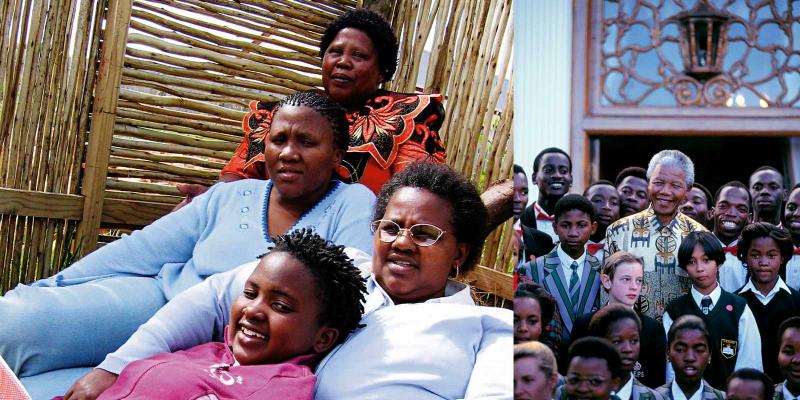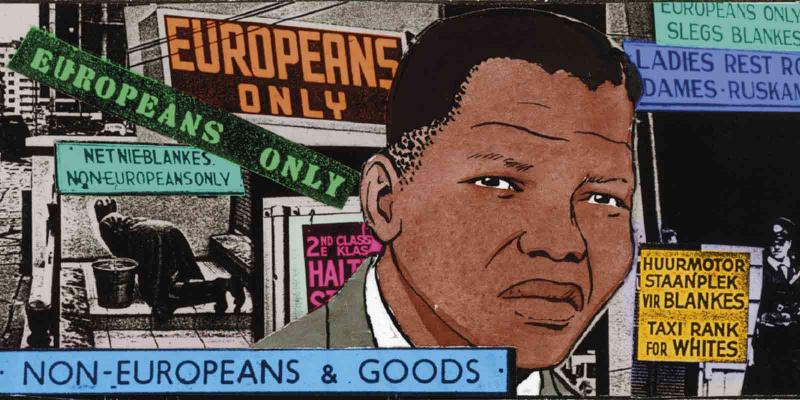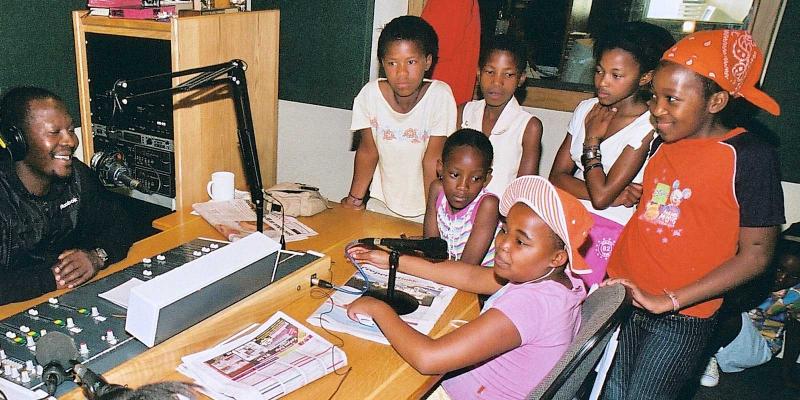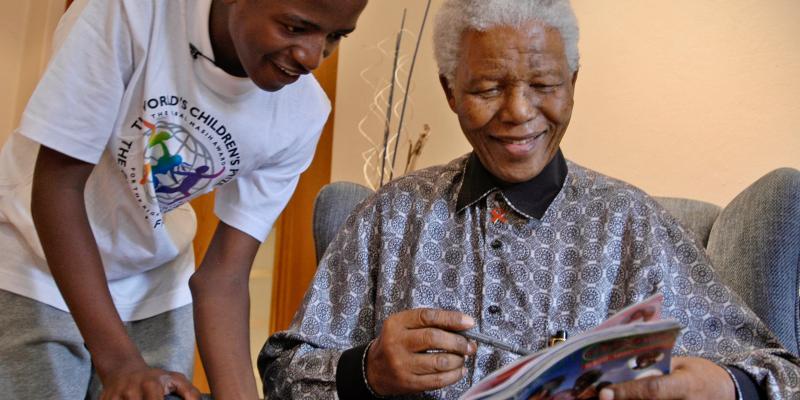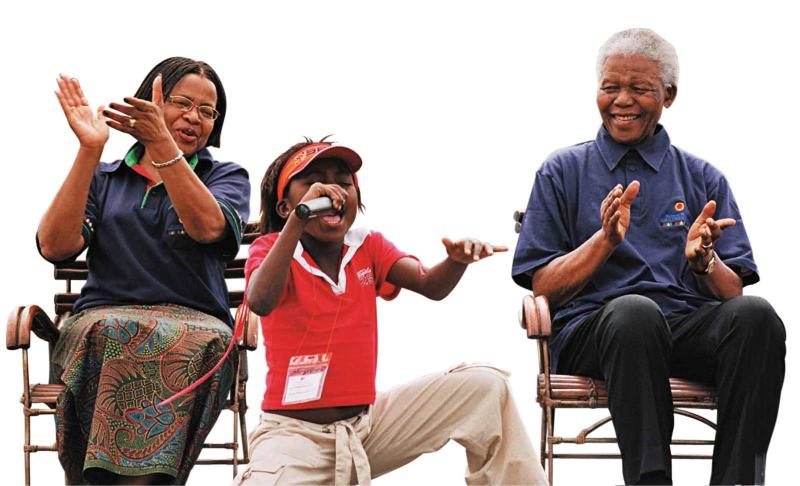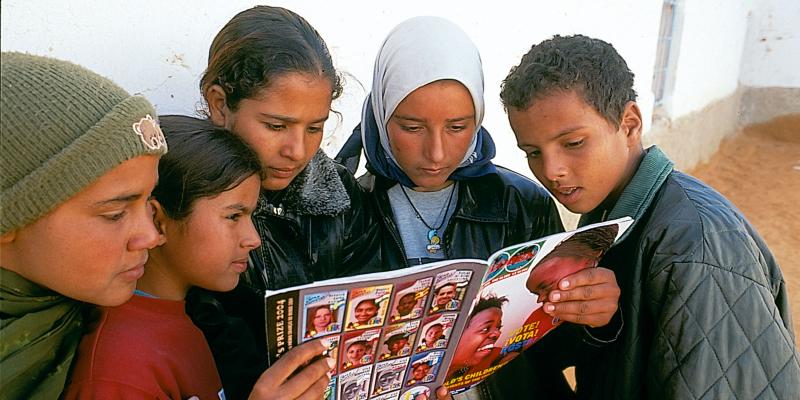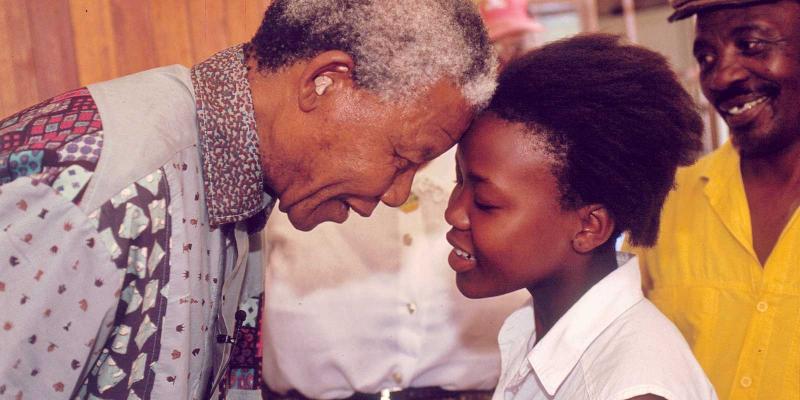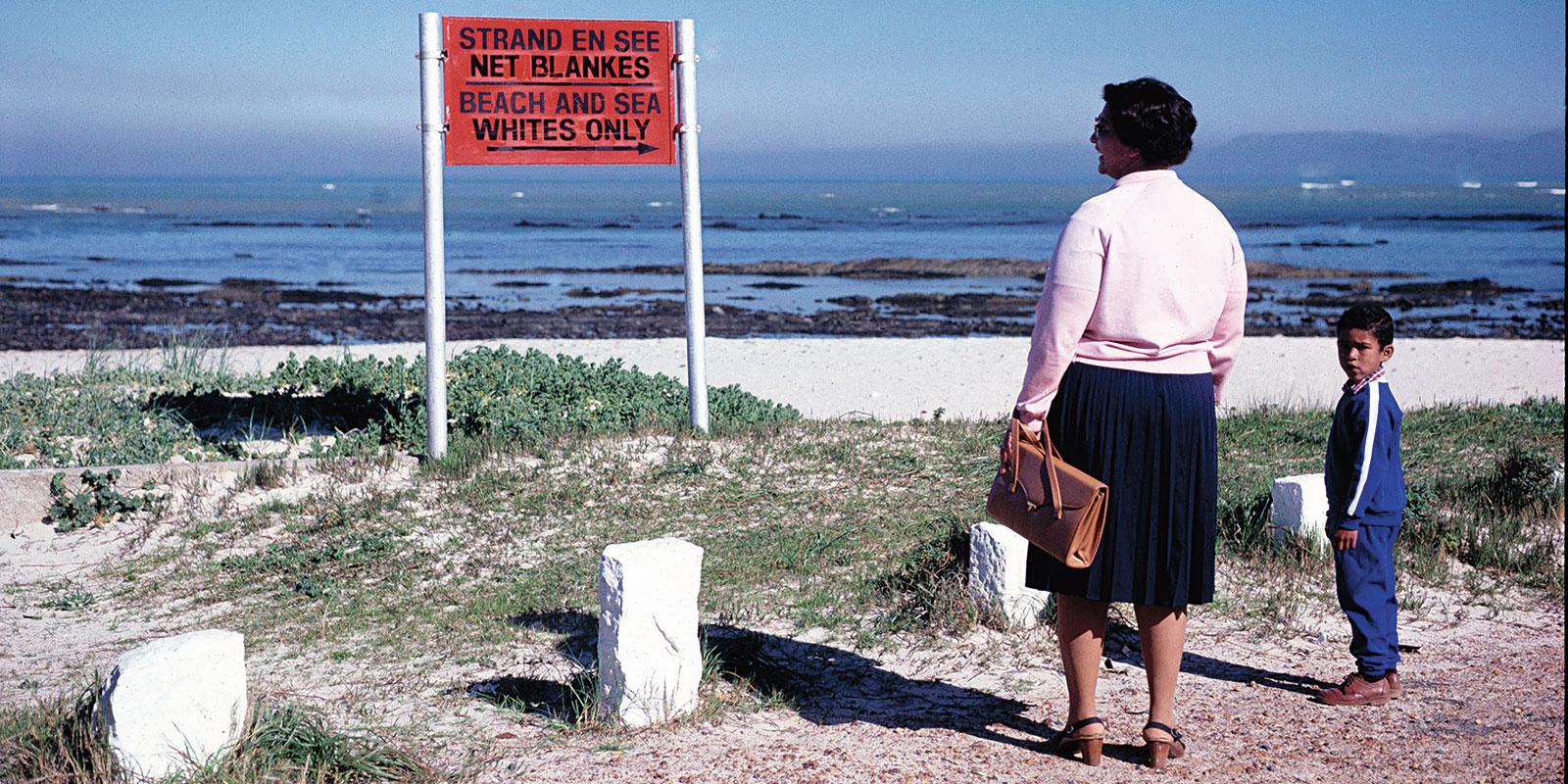
There is and always has been racism throughout the world. But in South Africa, during the last century, racism became a way of life. Here, in 1948, racism was actually legalised.
Apartheid Apartheid means “seperateness” or “being apart” in Afrikaans. Blacks and whites were kept separate from each other. Apartheid was racism by law and the government, the laws and the courts supported racism.
Forbidden families It was illegal for black and white couples to marry. If a black and white couple had a baby, the baby was called "coloured" and could only live with his or her black parent. If the police found the parents living together, they were charged and sometimes jailed.
llegal homes South Africa was divided into black and white areas. Millions of black children and their families had to leave their homes in "white" areas and go and live in the "black" areas. Here there were no proper schools, hospitals or jobs. The children were left with family members while their parents went to find work in the white people´s homes, farms and factories. Many children only saw their parents at Christmas.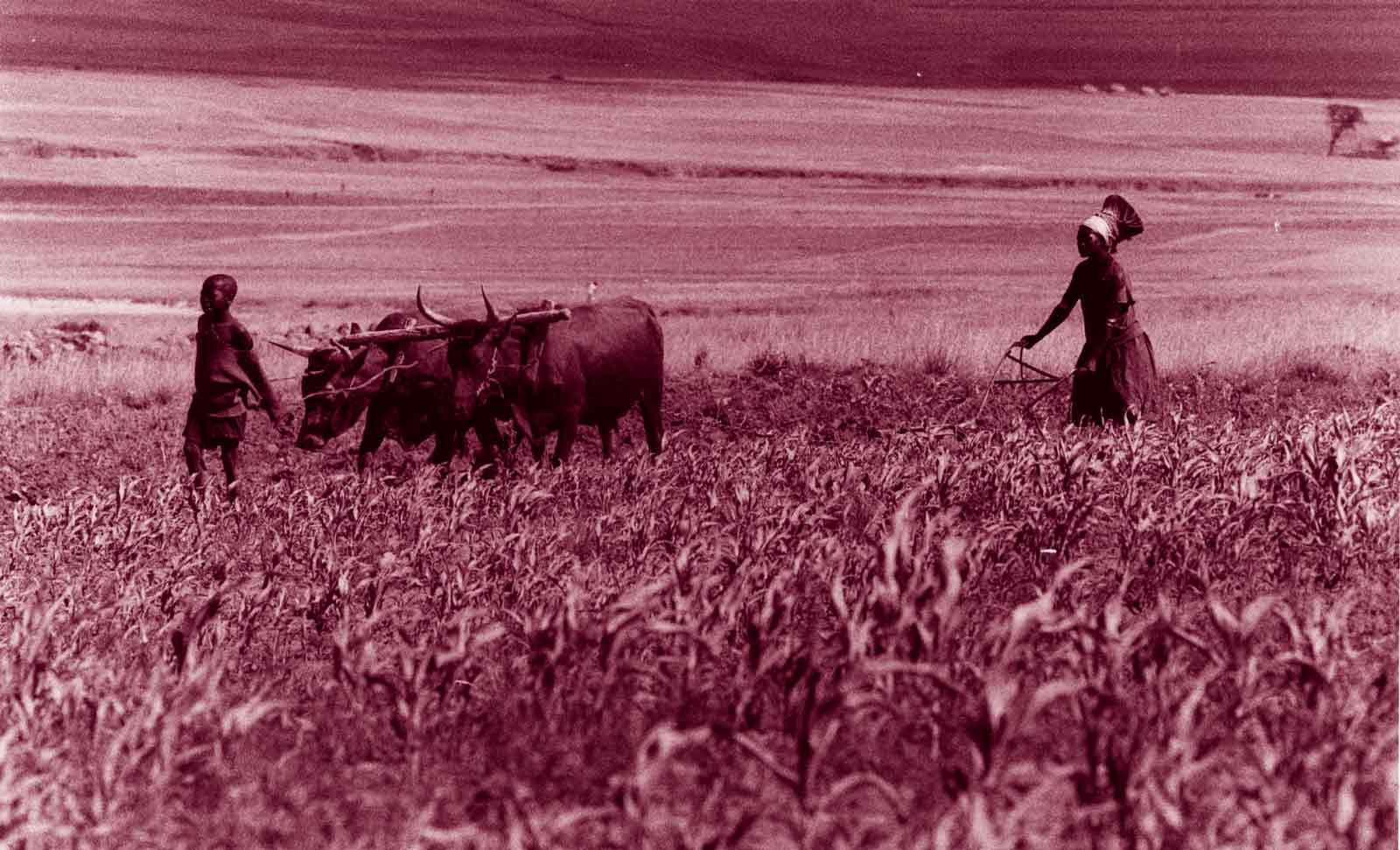
Child labourTens of thousands of children became labourers on farms or in factories. They got little food, were badly paid and never attended school.
Poor educationThe schools in the black areas were very poor. Children had to share small desks and, often, more than sixty children crowded into one room or sat under trees. Black children were not allowed in white children´s schools. The black schools were poorly equipped and had a separate curriculum that prepared them for practical work as labourers for the white people. In 1975 the government spent 42 rand per black student and 644 rand (15 times as much) per white student. 71
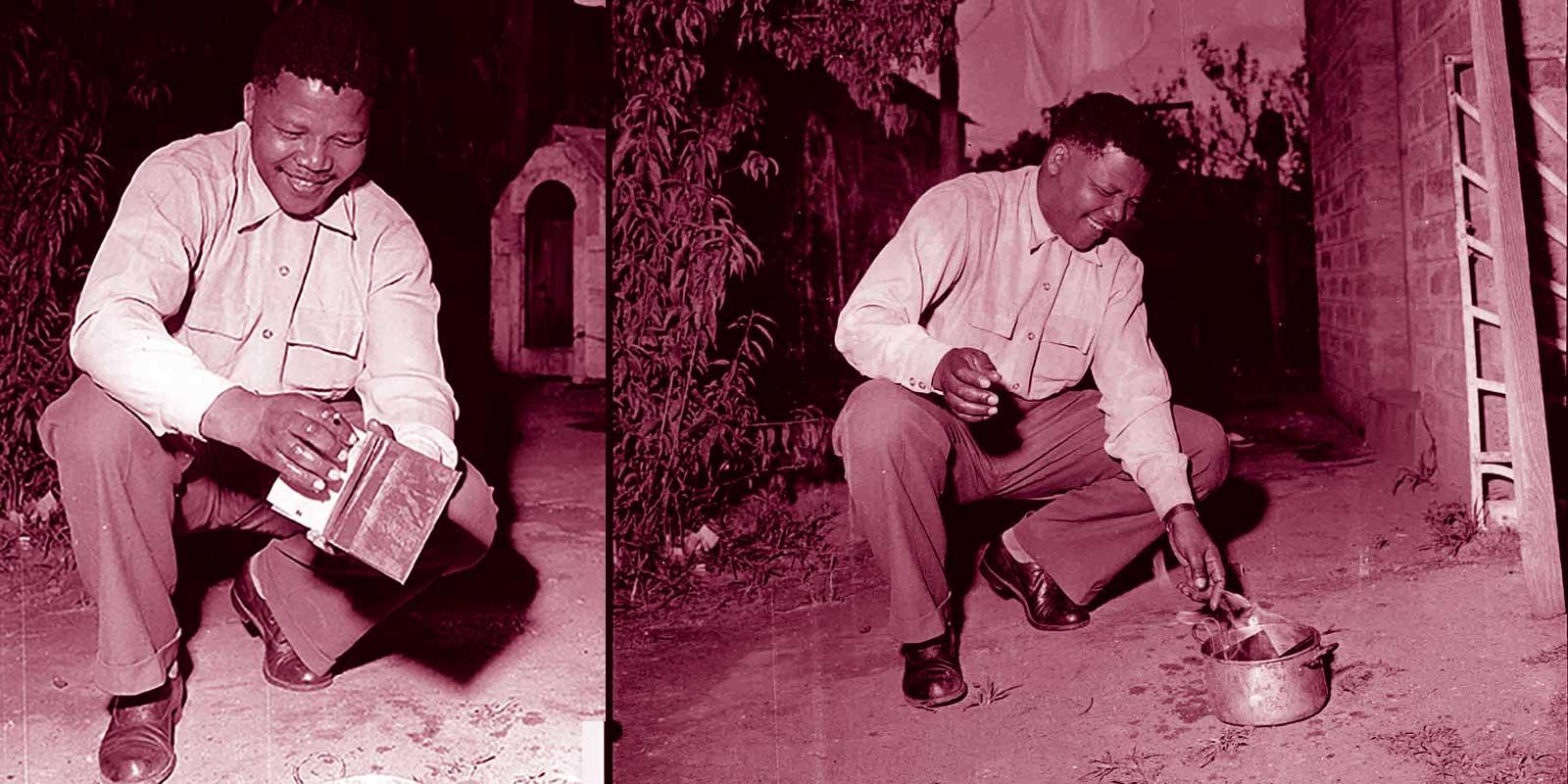
A young Nelson Mandela burns his passport to protest the unfair and racist pass laws.
No pass meant jail Black parents had to carry a passport – which they called a Dompas, meaning “a stupid pass” – when they worked in the white areas. If blacks were found without this pass, they would be jailed or sent back to their “black” area, without work.
Apartheid everywhereA law dating from 1953 made it illegal for black children and their parents to use buses, park benches, public toilets, hotels, shop entrances and many other services designated exclusi-vely for white people. The signs said “White Only”.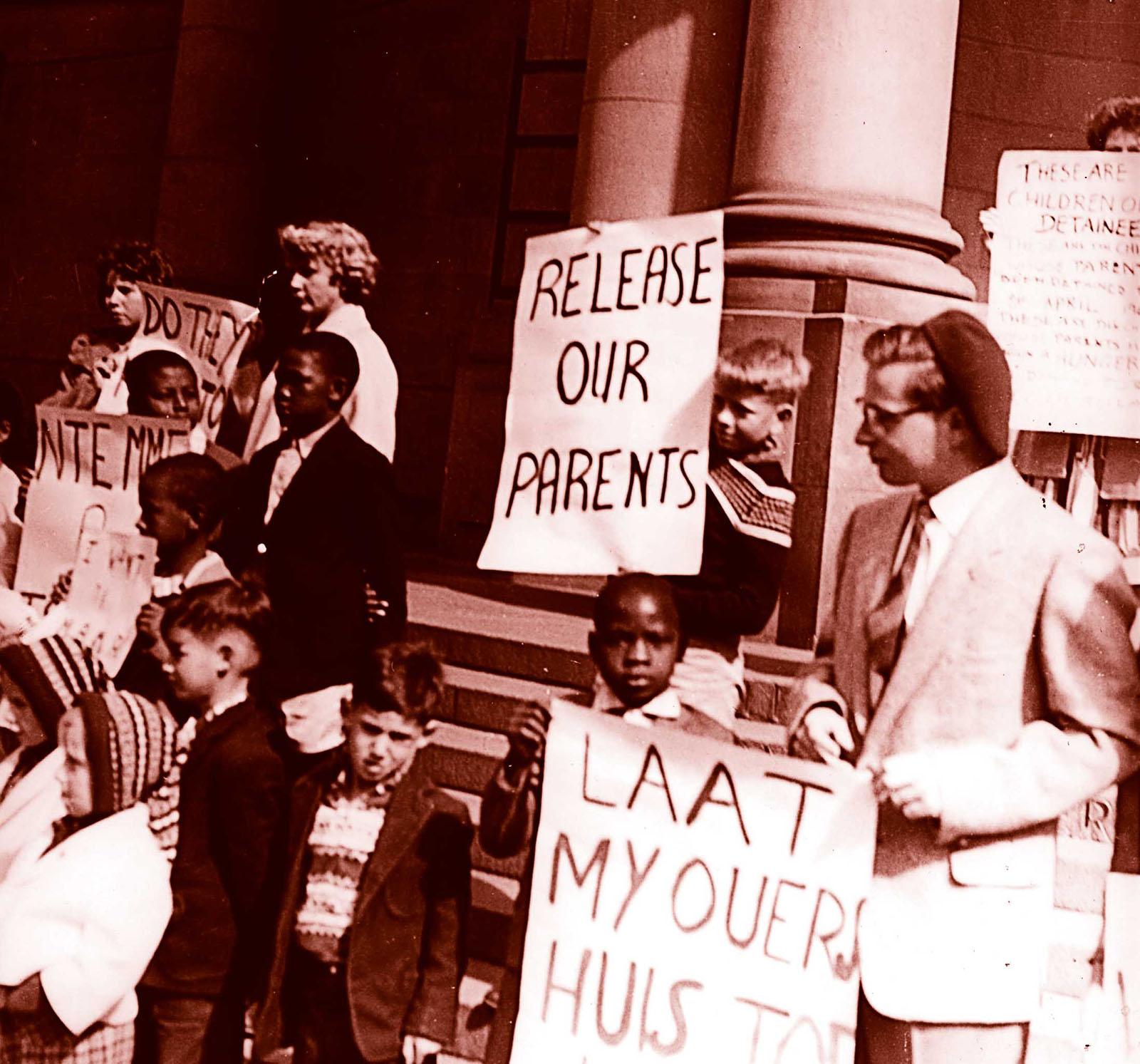
Parents jailedThe black parents in South Africa were angry at the unjust treatment. They found it impossible to support their children properly. There were few hospitals in the black areas for children who fell ill; schools were bad, housing was poor and there were no recreational facilities for the children. Parents organised them-selves into anti-apartheid groups and protested against the apartheid laws. Thousand of children lost their parents, who were killed or jailed for protesting. Thousands of children ended up on the streets because they had no homes. Some formed groups, a sort of families without adults. In desperation many began to steal food and were then jailed for theft.
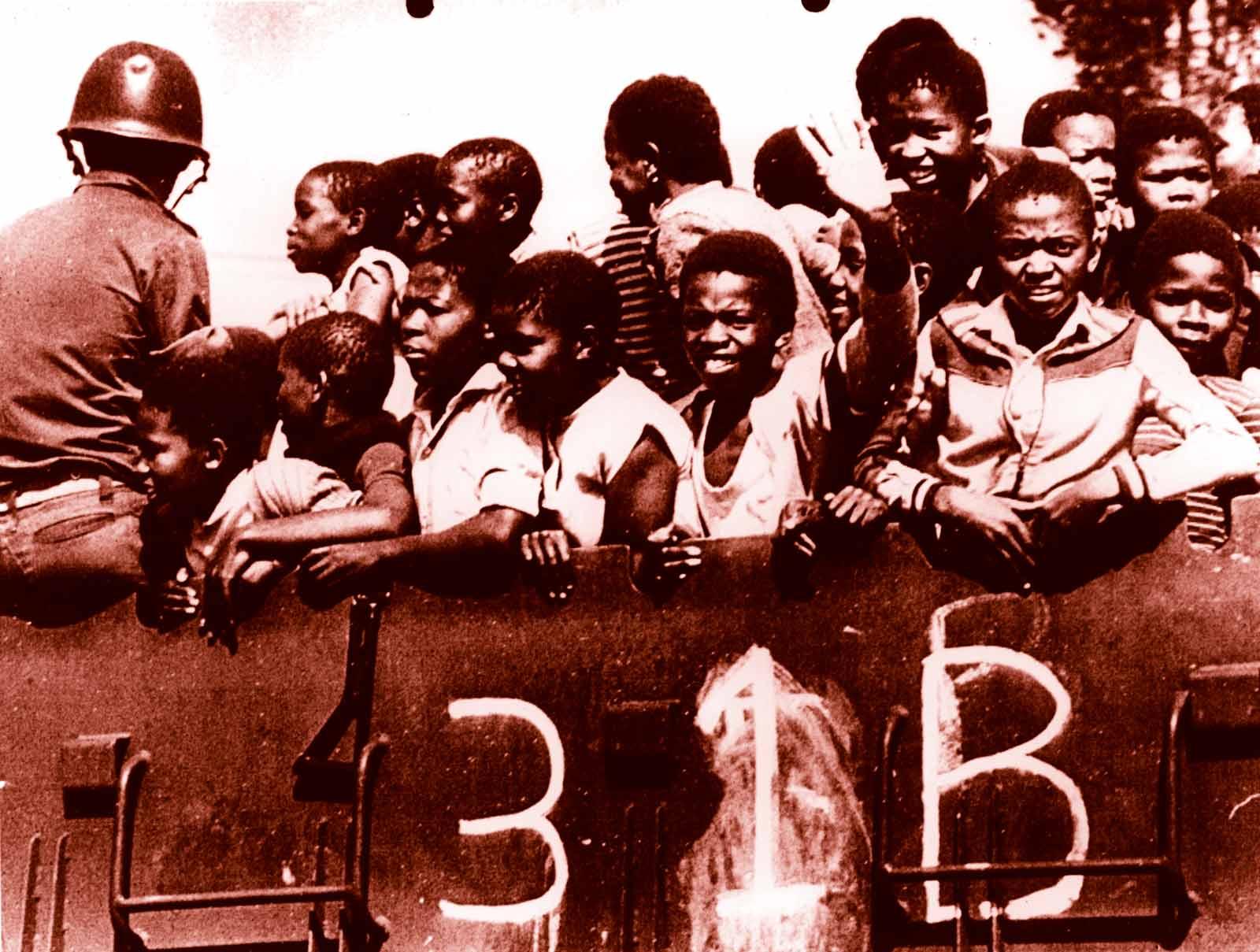
Protests The black people’s political organisations, including Mandela´s ANC, were banned. Hundreds of black activists, many of them parents, fled the country and thousands were jailed. Many adults had to live on the run in order to escape the police. Consequently thousands of children were left in the care of grandmothers, while their parents fought against apartheid. On 16 June 1976, black students protested against apartheid education. Police responded with teargas and live bullets. 13 year-old Hector Pieterson was shot dead. Today, 16 June is a public holiday in South Africa; it honours all young people who lost their lives in the struggle against apartheid. The protests continued for 15 years until the end of apartheid. Police and soldiers used violence against the children. During that time, many children were jailed, tortured and killed.
Related stories
Långgatan 13, 647 30, Mariefred, Sweden
Phone: +46-159-129 00 • info@worldschildrensprize.org
© 2020 World’s Children’s Prize Foundation. All rights reserved. WORLD'S CHILDREN'S PRIZE®, the Foundation's logo, WORLD'S CHILDREN'S PRIZE FOR THE RIGHTS OF THE CHILD®, WORLD'S CHILDREN'S PARLIAMENT®, WORLD'S CHILDREN'S OMBUDSMAN®, WORLD'S CHILDREN'S PRESS CONFERENCE® and YOU ME EQUAL RIGHTS are service marks of the Foundation.




